Sustainability
PRODUCTS | PACKAGING | PRIORITIES

Swedish thinking. Better living.



Swedish thinking. Better living.

Electrolux continues to benchmark itself against competitors in the marketplace as a key player in the sustainability debate for the appliance industry.
Electrolux Vice President and Managing Director of Australia and New Zealand, Kurt Hegvold, has provided some insights into the way the company approaches its sustainability goals in the current marketplace.
“Sustainability is a topic and a space within the industry that I’m passionate about and our organisation is passionate about. The great thing about it is, we certainly don’t stand alone in this because we have many peer companies which are very focused on important initiatives, not only domestically, but globally.
“If we look at the likes of Beko, Samsung, Miele, Fisher & Paykel – they’re all really committed to this from a supplier standpoint. And of course, our retail partners likewise are very committed to finding solutions within our industry,” he added.
“Electrolux has been at this for a long time. In fact, long before it was a requirement to put out sustainability
reports, Electrolux has been putting out sustainability reports for well over nearly 40 years now. Globally, the Electrolux Group has been very committed to this sort of purpose which is shaping living for the better. Domestically, we’ve been doing this for over a 100 years here in Australia and globally, it’s coming up to 120 years,” said Hegvold.
“Our business strives to create better and more sustainable living for people around the world through our sustainability framework, which is titled For The Better 2030. Naturally, this focuses on our Science-Based Targets (SBTs) as well as our Sustainable Development Goals (SDGs) and what we’re trying to achieve as an organisation.
“We’ve broken that framework into three areas which are: a Better Company; Better Solutions; and Better Living.
“Obviously, a Better Company is how we always try to achieve resource-efficient operations by driving safe, diverse and ethical company operations and make sure we’re driving value through the supply chain which delivers better overall sustainability footprints.
“For Better Solutions – this is looking at the type of materials we use with more materials that can be recycled. This is also about our core product and how


we’re trying to meet the ongoing demand for lighter impact appliances that continuously optimise their performance while never taking away from the consumer experience and doing what the product needs to do. We still need to make sure that we continue to have products that are always creating either a lighter touch in the use of the product or a lighter touch in the end use of the product.
“Finally, for Better Living it’s more around the human behaviour element. It’s around how our products can drive better eating habits and longer lasting management of food. Better longer lasting garment care, less water and better home environments that we can partner with consumers and retailers alike,” said Hegvold.
“As a business we obviously have our 2030 goals and our 2050 goals across our scope one, two, and three emissions targets. Pleasingly, Electrolux actually exceeded its 2025 goals in this area. We achieved scope one and two goals back in 2023. Then, we went back and actually put forward a new range of expanded science-based targets through to 2030. And this sees us by 2030 having 85% of all scope one and two emissions removed from our business,” he said.
“For scope three, we’re certainly exploring this. It remains a really difficult space to play in at the moment, but we are at least looking at a 50% reduction by 2030, which gets us well in our way to net zero by 2050. And I think in this space of scope three, this is a really challenging, complex task. When we talk about data quality and data availability, there’s low accuracy and very diverse sources, and there’s complex supply chains and multi-tiered global supply chains, so calculating indirect emissions and how we attribute these can be difficult.
“It’s complicated and I think this is going to be more and more a focus for our business globally and all businesses because it’s going to become, essentially a legal requirement from a director to sign off annually on the company’s sustainability report. And naturally, Australia is about to move to regulated sustainability reporting for companies over $50 million. And as a company director, you’ll be responsible for signing off on that.
“At the moment, scope three does not have mandated and regulated requirements. But it will be soon because it has to be if we’re going to hit our targets. So that’s really top of mind I think for myself and many of us in the industry. But primarily we are phasing out our global warming gases,” said Hegvold.
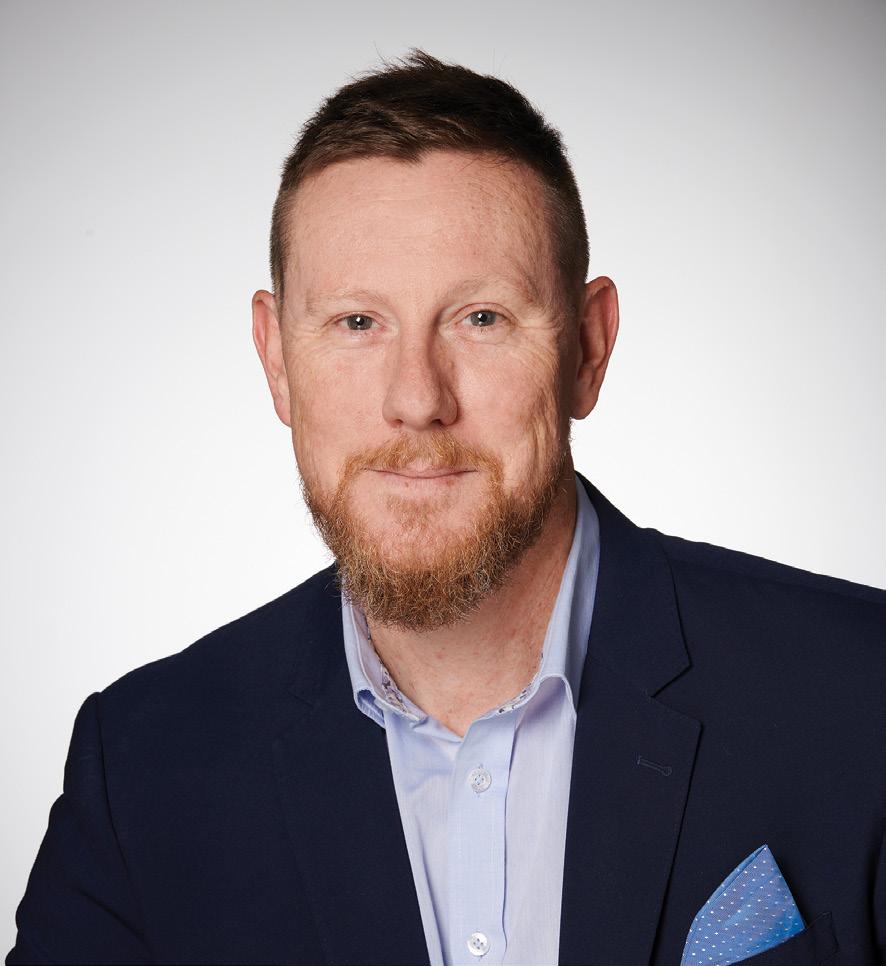
“So, 97% of our refrigerants are now gone and 60% of our operation’s energy is renewable globally. Within Australia, we’re closer to 80% here. Plus, we’ve put a lot of local initiatives in place with our new facilities in Melbourne and Brisbane, which are six-star energy rated facilities.
“Adelaide is a 100% zero waste to landfill. It’s running on pure renewables, and then, further up the chain, we’re actually now at a point where we’re getting around 96% or 97% of all materials recycled at every site across the business which is all working with our partner Waste Pro.
“Overall, we have some good initiatives in place, but we’ve got a long way to go. And we’ve still got many areas of all scope, one, two, and three which we want to tackle and a lot we want to do around product and packaging stewardship on a domestic front. That’s also a really tricky area to navigate.
“We are steadily making progress towards our ambitions and in fact, towards some of those very broad and scaled ambitions around our SDGs – we are actually ahead of our targets at this point in time. But you never know, there’s a lot of geopolitical movements at the moment and a lot of challenges and changes happening. I only hope that those targets become more stringent rather than looser.
“We’ll have to see what our friends in certain parts of the world have in mind for us but the long answer to a short question is yes, we have a lot going on in this area,” Hegvold said. AR
Rooted in our Swedish values and a sustainable relationship with nature, we design with a clear purpose. We do everything we can to nurture our planet for future generations. We not only create taste experiences, take care of clothes and maintain a comfortable home. We create experiences shaped by how we live and by innovations that help people live better.
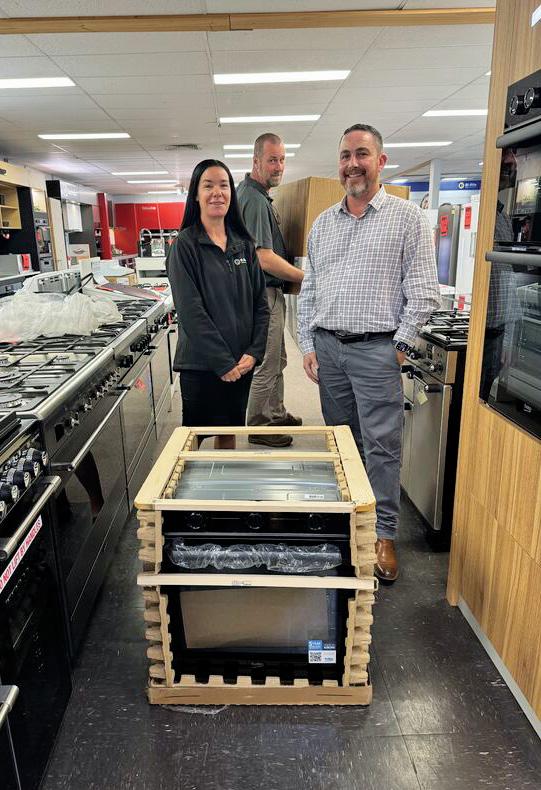
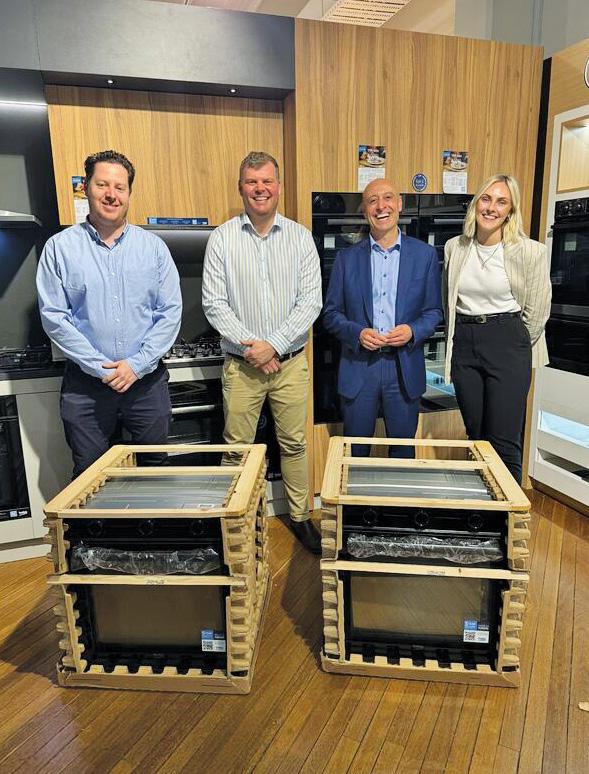
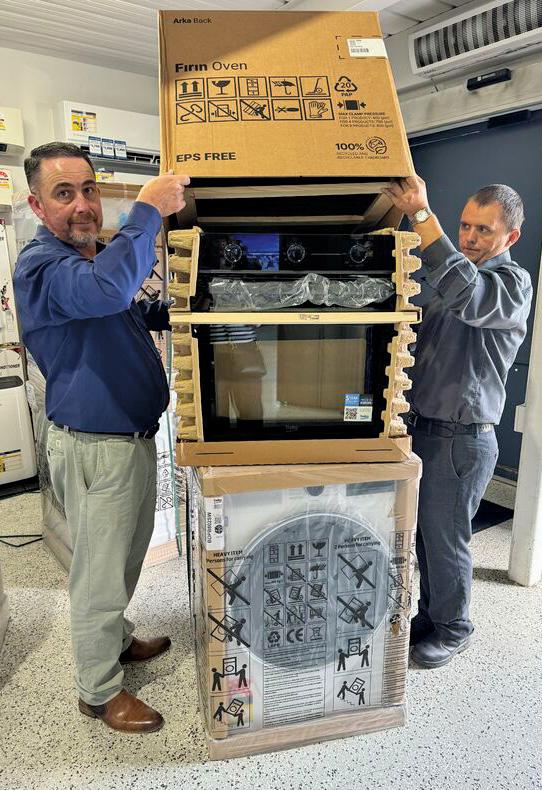
Beko has taken the next step in its sustainability journey with the launch of two new 60cm built-in oven models – BBO6851PDX1 and BBO6851PSDX –in EPS-free packaging.
Acording to Beko ANZ marketing manager, Amanda Hart, this initiative aligns with the company’s 2030 plastics plan and is part of a broader commitment to reducing environmental impact while maintaining product safety and quality.
“EPS-free packaging eliminates expanded polystyrene in favour of recyclable materials, such as solid timber supports and reinforced cardboard layers, making it easier to dispose of responsibly while improving stability and handling. The transition to EPS-free packaging has gained momentum in Western Australia, where government-led sustainability initiatives are accelerating demand for eco-friendly alternatives.
To ensure durability across Australia’s diverse transport environments, in late 2024, Beko shipped up to 20 units of its 60cm built-in ovens from its Ormeau, Queensland warehouse to retailers nationwide, including Reilly’s Designer Appliances (Bendigo, VIC), Whitfords Designer Appliances (Camperdown, NSW), Bi-Rite Appliances (Underwood, QLD), Bi-Rite Appliances (Wangaratta, VIC), Betta (Bateman’s Bay, NSW) and Retravision (Cannington, WA).
“Retailers provided invaluable feedback on the new packaging’s performance. Key benefits included improved product stability due to solid timber reinforcements, easier handling and repacking, making display setup a single-person job and stronger protective layers, ensuring ovens arrive undamaged.
“The solid timber supports really give it stability, and the thick cardboard, egg carton construction keeps the oven well-protected,” said Beko ANZ national sales manager, Eddie Gaymer.
Beko has been testing EPS-free packaging solutions since late 2024, and this launch marks the first phase of a broader rollout. By eliminating expanded polystyrene, the company aims to reduce plastic waste across the supply chain, enhance recyclability for consumers and retailers and meet evolving sustainability regulations in Australia and New Zealand.
Hart acknowledged the crucial role of retail partners in shaping this initiative.
“We’re deeply grateful for the support and open feedback from our retail partners. Their commitment has enabled us to gather essential insights, which we’ve shared with our factories and development teams. We’re excited to continue collaborating with them to deliver EPS-free packaging solutions that benefit our consumers, our partners, and our planet.
“Beko will closely monitor the performance of the BBO6851PDX1 and BBO6851PSDX models in EPS-free packaging and will expand testing to other product categories. This is part of a larger sustainability strategy to refine eco-friendly packaging solutions without compromising on product protection or customer experience. With the launch of these two new models, Beko ANZ continues to lead the way in sustainable innovation – delivering quality appliances with a lower environmental impact.” AR
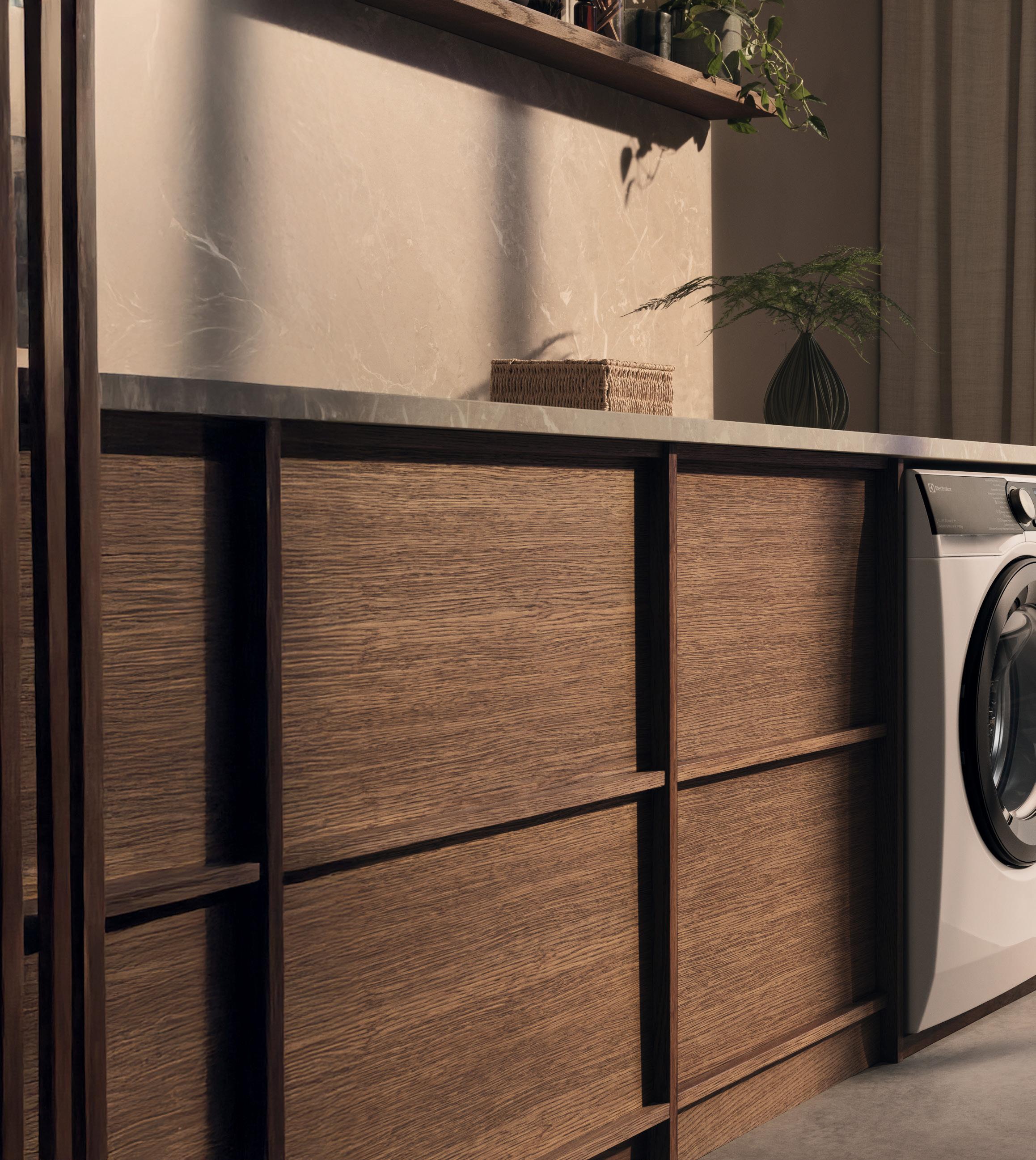
Born in Sweden, Electrolux continues to design products with its heritage at its heart. Focused on Scandinavian design and practical innovations to make laundry time easier, Electrolux is shaping its future with the planet in mind. The new range of laundry appliances builds on this commitment, offering greater energy efficiency, faster wash cycles, and SmartSelect technology to help you choose the most sustainable cycle.

Winning Group head of sustainability and industry impact, Alice Kuepper, has warned the industry of increasing regulation and mandatory stewardship schemes.
“In New South Wales, the government has announced there will be a mandatory safe disposal and battery stewardship scheme coming into effect this year. Climate reporting has also just become the law in Australia with a phased-in approach, depending on your company size, your turnover and your assets.
“I think the other development that is at the forefront of a lot of our colleagues and businesses in this space is the expanded polystyrene ban that is coming into effect in Western Australia. Plus, we’re seeing a phasing out of EPS and that is having real flow on effects to everyone in the supply chain,” she said.
“In terms of packaging, the government has announced reforms on packaging regulation as has the coregulatory body APCO – the Australian Packaging Covenant Organisation. They’ve announced that they’re going to introduce eco-modulated fees, which
are essentially fees that are placed upon retailers and manufacturers to pay levies based on the type and the quantity of the packaging material they’re placing on the market—and how problematic that packaging material is at the end of its life.”
“So, there’s a lot coming our way. From the consumer’s perspective, we are definitely seeing there’s more interest in sustainability. Recently, we launched via Appliances Online – an initiative where we’re highlighting energy efficient and water-efficient appliances to our customers – and we’re seeing a really good response to this,” Kuepper said.
“We have also launched our packaging partnership program with three of our suppliers – Electrolux Group, Bosch and Beko are coming on board as partners and we’re communicating their efforts and some of their initiatives as well as ours to our customers. And we’re also seeing a really good response to this,” she added.
“The government is introducing a lot of these schemes because there are a lot of free riders and that’s what they want to address. And so, I think what we will be
seeing is that companies will need to start investigating, asking questions and having a much closer look at their operation,” Kuepper answered.
Kuepper said there are a lot of things companies can do to start becoming more sustainable and that this where the Winning Group started: “We had an existing capability and an existing offering with our product take back and recycling, which, when it was launched in 2005, was quite revolutionary. And so, what we saw was an opportunity to tap into an existing process and overlay the packaging take back and recycling program,” Kuepper said.
“I think that there’s a lot of businesses in our industry that have existing capabilities that they can build upon. They have existing relationships where they just need to start asking questions around responsible sourcing, ethical credentials of their factories and environmental credentials of their factories,” she added.
Kuepper believes another topic that the industry needs to be aware of is the impact of e-waste from end of life electronics and components.
“Certainly, e-waste is an incredibly hot topic for Australia because we actually generate more e-waste than any other country. We create 22kg of e-waste per person each year. And that’s three times the global average and it’s growing rapidly. And so, there’s a real need for our industry to start taking that responsibility into account with collaboration from the government.
“When we look at Europe, for example, a lot of the main suppliers and manufacturers which are coming into Australia are already part of these schemes in Europe. It’s just that their governments have moved a lot faster,” she added.
Kuepper has also highlighted the role that the Australian Packaging Covenant Organisation (APCO) has in the industry.
“APCO is effectively a co-regulatory body which looks after packaging stewardship or packaging end of life outcomes – and also circularity of packaging in Australia.
“Companies are mandated under the Australian packaging regulation to report to the government in terms of how much packaging they’re placing into the market. Now, there’s two options to do this. You can either report to the regulatory body in each one of your states and complete an annual report, or you can become a member of APCO and complete that reporting once per year in the APCO template.
“Companies also receive a lot of guidance on sustainable packaging from APCO. For example, APCO has released sustainable packaging guidelines and also targets. These include that
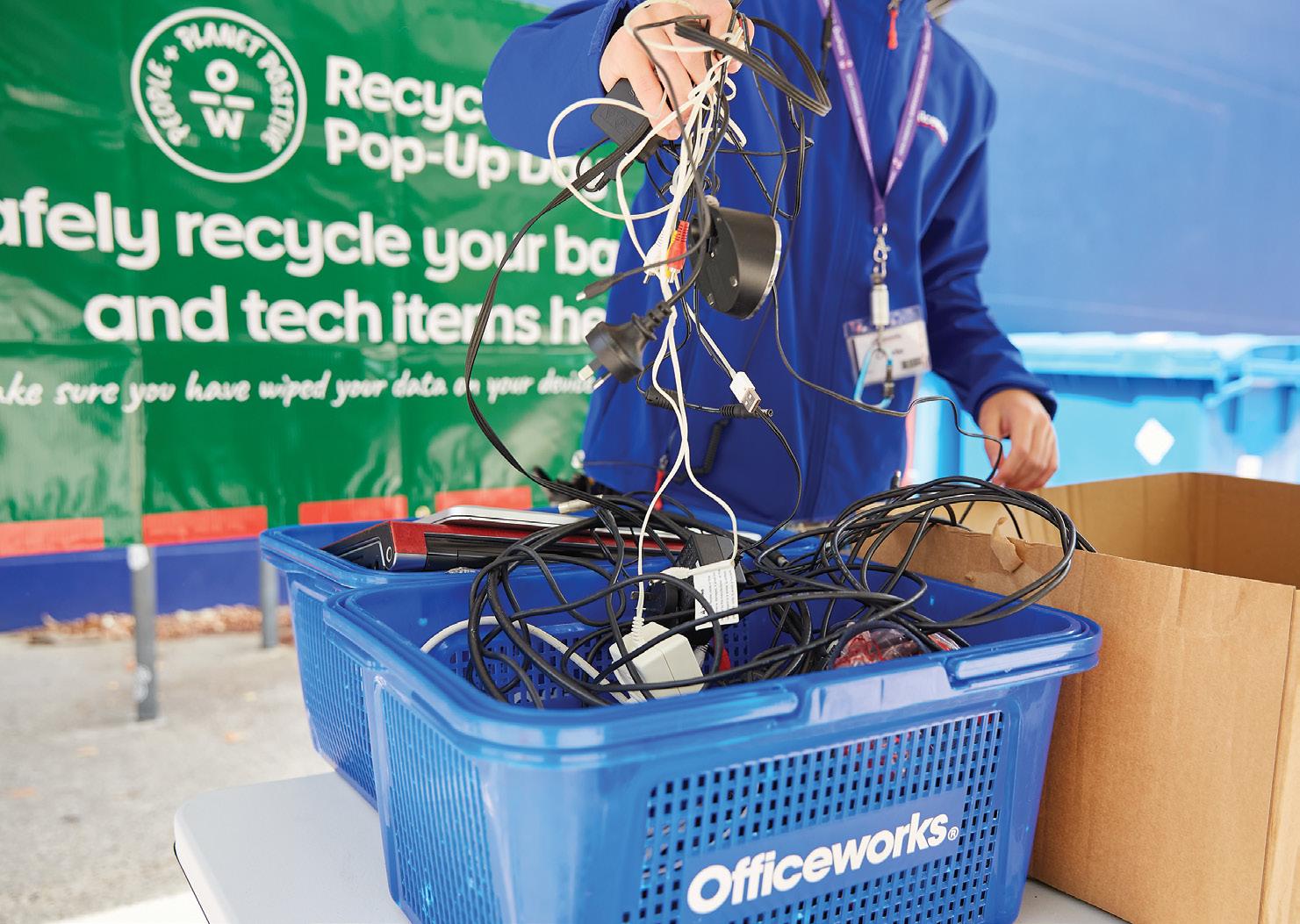
a certain amount of recycled content should be in your packaging by 2030 and certain packaging should be completely phased out of the market,” she said.
ABOVE: Australians create 22kg of e-waste per person each year - three times the global average.
BELOW: Winning Group head of sustainability and industry impact, Alice Kuepper says there are a lot of things companies can do to start becoming more sustainable, including around EPS.
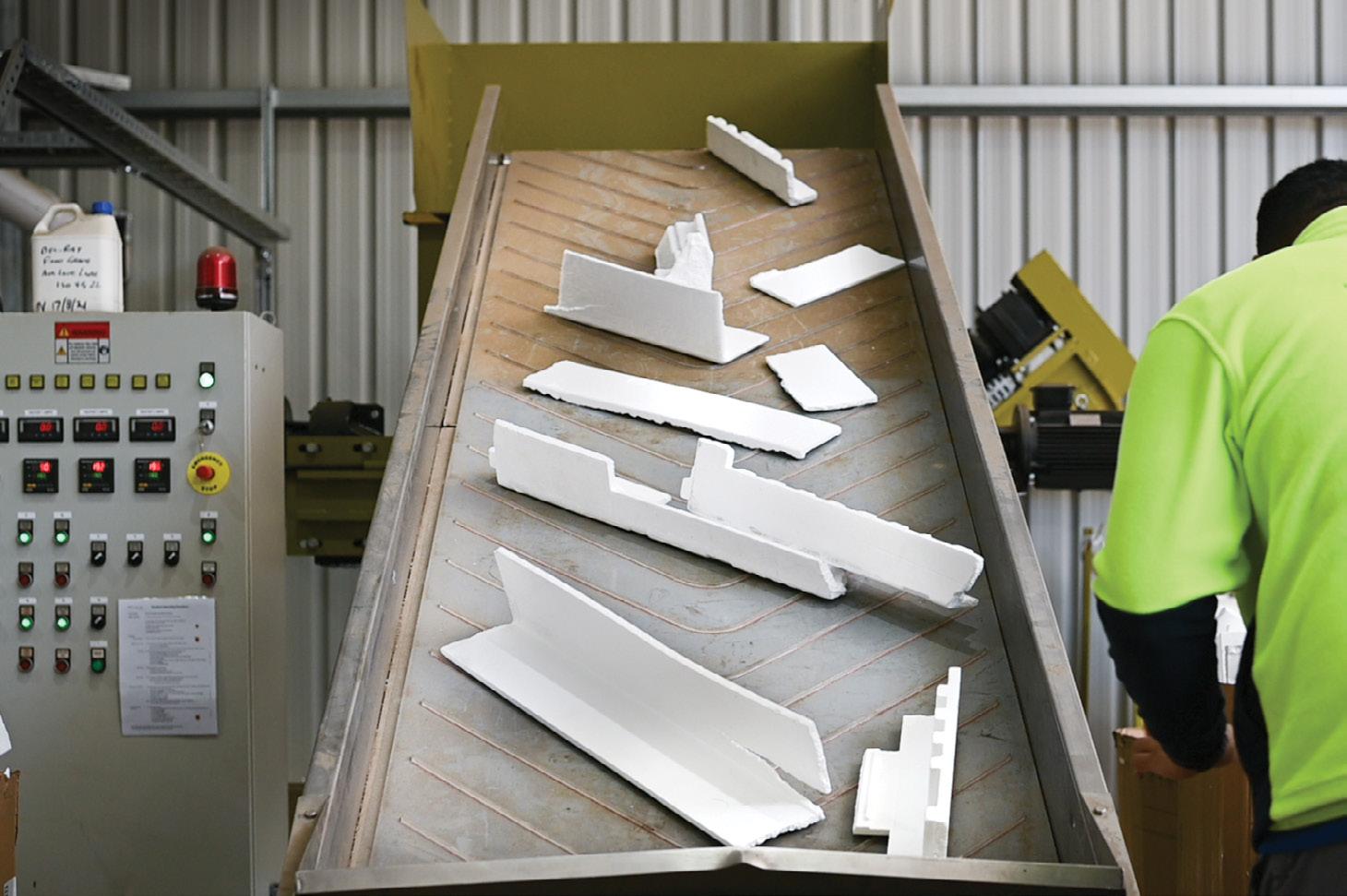
“Previously the membership of APCO was determined by company turnover, but going forward, what APCO has announced is that the membership and the fee that members need to pay, will be based on eco-modulated fees, which is essentially a fee that tariffs or taxes the amount of packaging placed on the market by the business – plus how problematic that packaging material is to recycle.
“So, packaging material like soft plastic or expanded polystyrene where we don’t have very good end-of-life solutions are going to be taxed higher for example. Whereas something like cardboard has quite a good end-of-life solution in Australia so it’s not going to be taxed or tariffed as high. What APCO does is it works with its members to fulfill their regulatory obligations, but also to help improve packaging sustainability for Australia and for the organisations,” Kuepper said.
“I think the idea of us all working closer together and gaining an understanding of how these sustainability issues are so interrelated is very important. As a whole industry, we have an opportunity to lift our game.
“Where industry players haven’t investigated becoming a part of it, they should certainly do so or otherwise, at the Winning Group, we do also share a lot of information around our initiatives. Through channels like Appliance Retailer, we certainly encourage everyone to engage and ask questions, so the information is shared around with everyone,” she added. AR

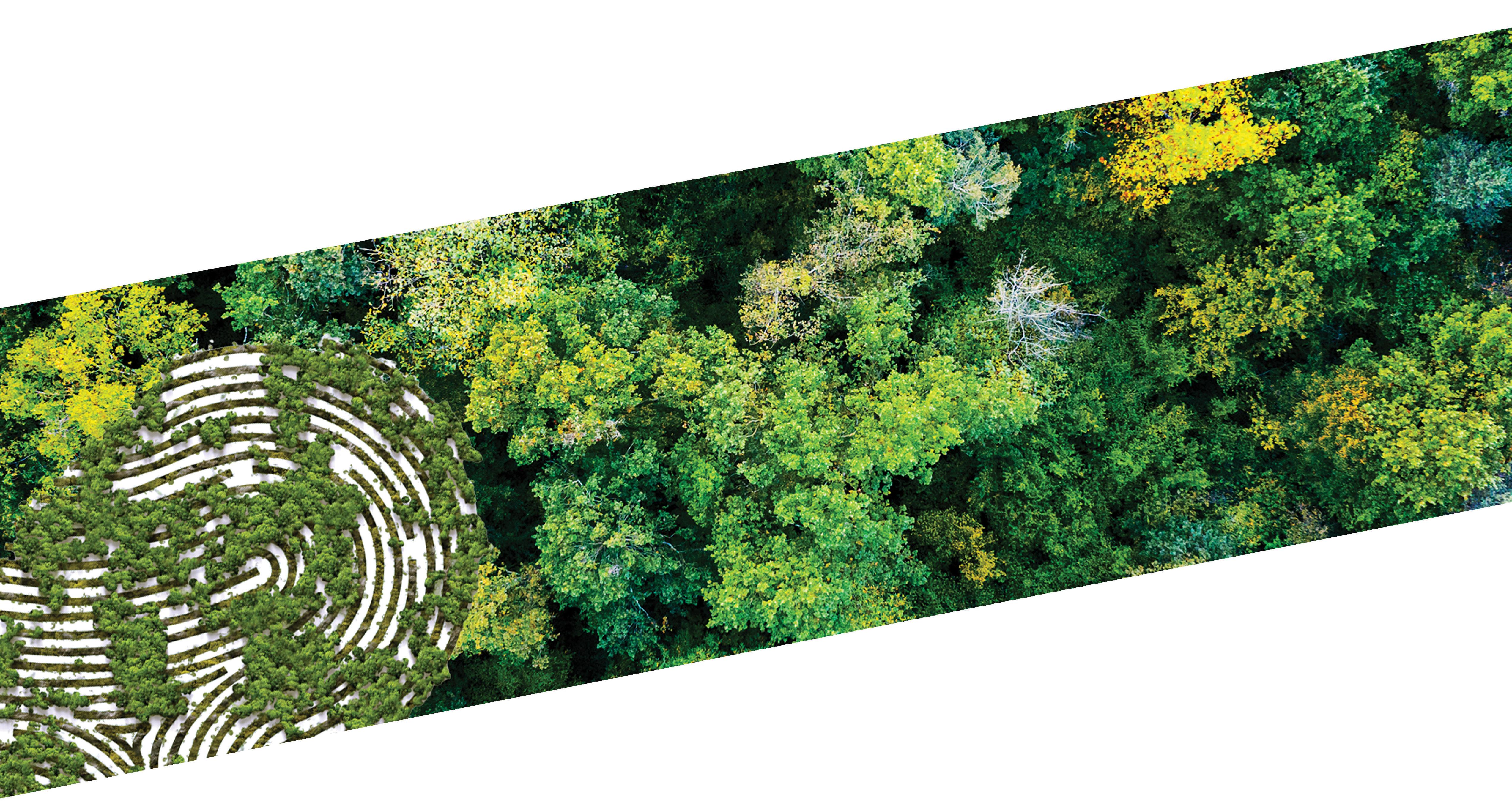


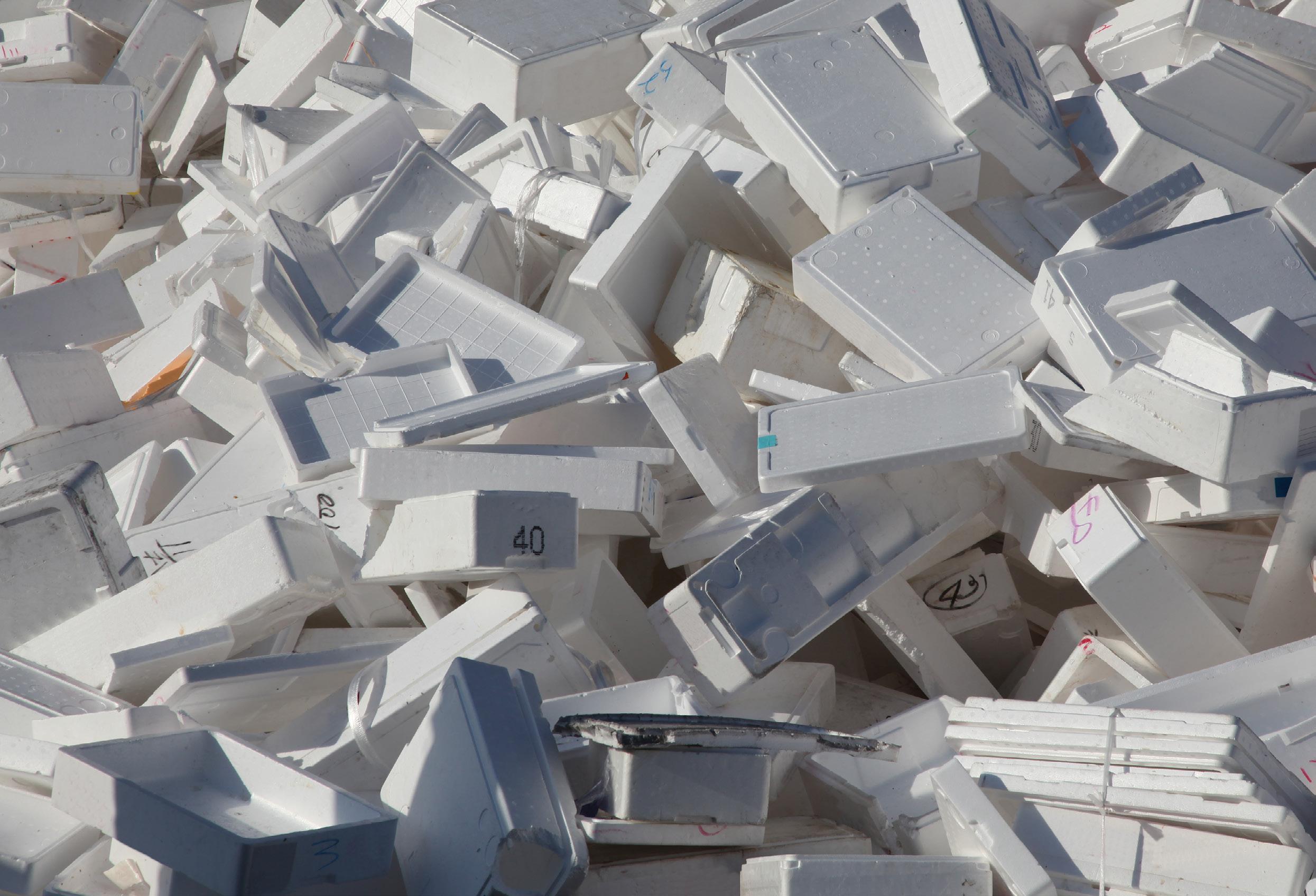
The Coalition for Sustainable Solutions (CoFoSS) is continuing to bring together the major industry suppliers and retailers to drive greater participation in sustainable solutions across the industry supply chain. As a group, these retailers and brands decided it would be better if they worked together to reduce the environmental impact of their products and packaging across the industry, by developing scalable and costeffective industry-wide sustainability solutions.
Some of the priorities of CoFoSS are to address the impact of expanded polystyrene (EPS) used in product packaging as well as e-waste from small appliances by developing industry-wide standards to ensure the responsible recycling of materials across the value chain.
CoFoSS Board Member and Winning Group Head of Sustainability Alice Kuepper has confirmed that the organisation now represents 70% of all the consumer electronics and home appliances product volume that’s moving through the Australian market with the current board representation.
“One of the key principles behind CoFoSS is that there hasn’t really been a representative body for the industry in terms of sustainability. What we’ve seen over the past couple of years is that there’s been regulatory developments where the industry didn’t really have a seat at the table.
“So, the government moved quite fast to regulate things and there was probably not enough consideration and engagement with the industry about implications on the supply chain
which made some of these developments not very viable at all. And so, there was a realisation that there’s a need from the policy makers and other industry associations, but also a need for greater collaboration and partnerships within the industry, to address some of these sustainability issues. Because fundamentally, these issues affect everyone within the industry and across the supply chain, and they’re too large to be addressed by any one company alone. It really does require a systematic approach. A collaborative approach. And that was a core idea behind the coalition and the forming of the CoFoSS,” said Kuepper.
Kurt Hegvold, Managing Director for Electrolux ANZ and the Inaugural Chair of CoFoSS, provided an update on the outcomes for the group and the how the industry can benefit from working together.
“The opportunity to do more to tackle the environmental impact of consumer electronics and home appliances products and packaging is bigger than any one business can achieve alone. CoFoSS has the potential to make real and lasting changes.”
CoFoSS has commenced discussions with a range of government and industry stakeholders and Hegvold confirmed this will be one of the coalition’s key priorities:
“We are committed to working collaboratively and constructively on behalf of our members. The early discussions with the government have been positive and support our goal to inform and influence policy decisions. We’re also working closely with

industry bodies, including the Australian Packaging Covenant Organisation (APCO), the Australian Retailers Association (ARA) and the Consumer Electronics Suppliers Association (CESA), to ensure we’re aligned in our efforts.
“A great topic we’re discussing at the moment is Scope 3 emission regulation and management. Plus, there’s the eco modulated tariffs which are coming down the line and how we integrate these across other existing taxes and/or tariffs,” he added.
“But for 2025, we’re going to get a good understanding of what the priorities are. We’re then going to take these and go out and actually build a stronger membership base. So right now, we’re a notfor-profit. We’re maintained purely by our members investing in the services we provide. So, making sure we have the right service model and the right value addition to those members, and continuing to build out our network is important, so we can expand what we are, who we are and what we stand for.
“The body of research we’re doing around our baseline study is going to be really important because this gives us some credentialed information. This will be very much an aggregated body of data that will remain very confidential in terms of who’s had input into it. But this aggregated data is something we can then shop around to different parts of government and regulatory
bodies to say – here’s some really important data which you don’t have,” said Hegvold.
“We now have a really good understanding of our waste stream, so let’s get a seat at the table and let’s start talking about co-regulation. Because we’ve found that government is moving fast and maybe by not having the right consultation, has ended up regulating against initiatives which haven’t delivered what everyone has the ambition for them to deliver.
“For example a lot of the alternate substrates to EPS, which are still being experimented with, are often far more resource intensive than using EPS. That’s both in their creation and in their recycling or disposal. So, we’re creating another problem and also the damage that would be caused by removing that substrate without finding the right alternative would almost outweigh the benefits of removing the EPS.
“You’re creating one significant problem while potentially solving another. So, the optimal approach I think is – with the data we have – is to demonstrate there is actually an enormous amount of packaging stewardship already happening and let’s build scale around the waste collection. Let’s find downstream demand we can create for that byproduct and create a circular solution to move to a stewardship program.” AR
The Coalition for Sustainable Solutions or CoFoSS is a not-for-profit organisation started by the National Associated Retail Traders Association (NARTA) in 2023.
board is currently comprised of the following members:


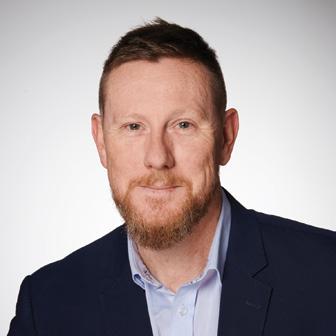
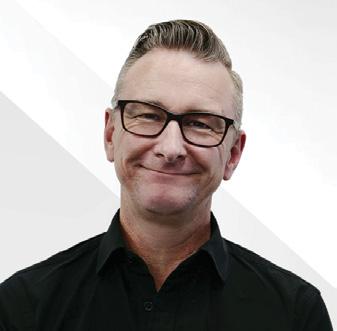

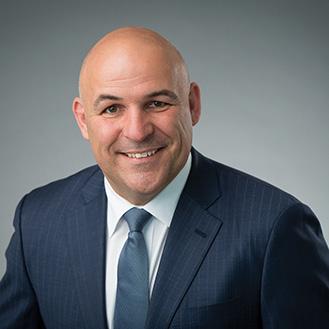

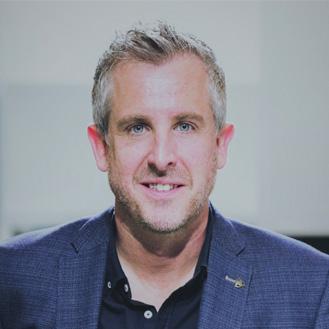
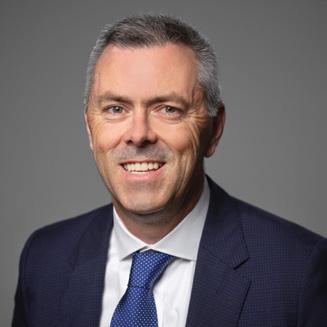


Guided by the philosophy ‘Buy Once, Buy Besser’, Miele empowers consumers to invest in products built to last, reducing waste and promoting a more sustainable future – such as the new InfinityCare washing drum, the first rib-free drum in the world.
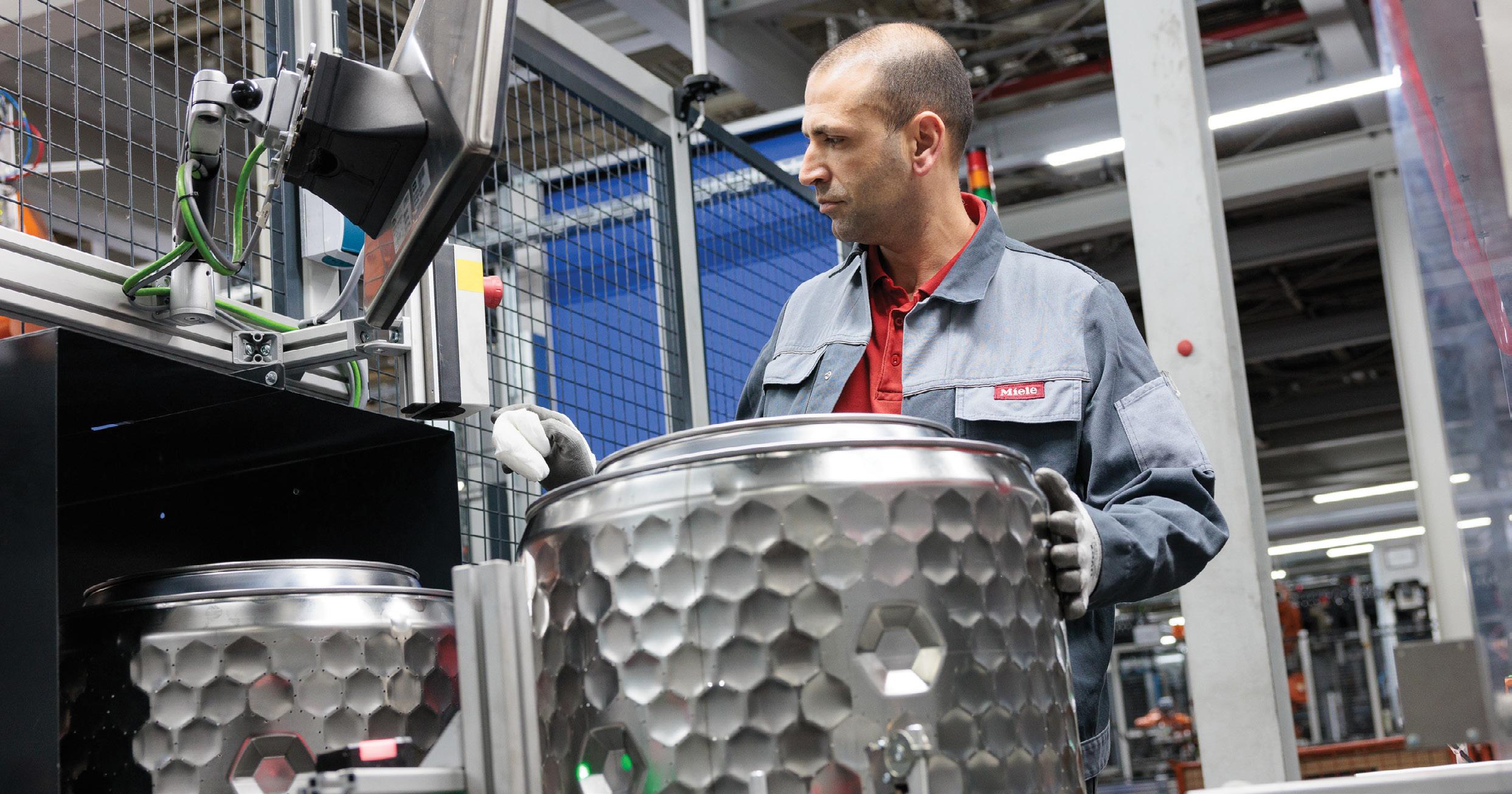
Miele has demonstrated a commitment to sustainability throughout its entire business locally and globally.
Miele Australia consumer data and product engineering manager, Matthew Slater, believes longevity is the ultimate form of sustainability, and Miele embodies this with its commitment to high-quality, durable appliances.
Guided by the philosophy ‘Buy Once, Buy Besser’, Miele empowers consumers to invest in products built to last, reducing waste and promoting a more sustainable future.
As the leader in 10-star efficiency tumble dryers and offering the largest range of 6-star water-rated dishwashers, Miele sets the standard for energy and water conservation without compromising performance. Sustainability is at the heart of Miele’s values, forming the foundation for long-term success. Miele has been an active participant in the UN Global Compact since November 9, 2004, and remains committed to driving positive change for both people and the planet.
Locally in Australia, Miele is proud to partner with Greenfleet to grow the Miele Forest at Ledcourt in Victoria. Thanks to staff contributions in 2023 and 2024, Miele is restoring two hectares of biodiverse native forest, protected for 100 years. Located on Jardwadjali & Djabwurung Country, adjacent to the Grampians National Park, this land was previously cleared for grazing and is now being revegetated to support native wildlife. Greenfleet has planted ground cover species, flowering plants to attract pollinators, and tall eucalypts to form the forest canopy. Along with staff, customers and community, Miele is growing hope for our environment.
Other initiatives Miele has introduced include:
Paperless operations: Miele achieved a major milestone in Australia by becoming completely paperless within the company’s warehouse and service departments in Victoria. By transitioning to electronic invoicing and tech notes, this saves over 500,000 sheets of paper annually, reducing Miele’s environmental impact and conserving valuable resources, like trees.
Appliance testing: The Miele philosophy is to buy once and buy better – and part of this is the fact Miele rigorously tests its appliances to simulate 20 years of average household use.
“Our endurance testing, based on real consumer usage patterns, ensures our products meet the highest quality standards and stand the test of time, so consumers get ultimate longevity out of their appliances,” says Slater. “These tests have been independently reviewed and confirmed as state-of-the-art by leading applied research organisation, the Fraunhofer Institute. While this does not serve as a warranty or guarantee of lifespan, it showcases our commitment to engineering durable, sustainable and long-lasting products.”
Hybrid Fleet: Miele has also changed its logistics operations globally by introducing Hybrid 4.0 tonne trucks to its fleets, reducing emissions by 25% compared to conventional diesel trucks. This move lowers Miele’s operational costs and supports the transition to a more sustainable future by reducing the company’s reliance on fossil fuels.
Solar-Powered Warehouse: Miele is committed to clean energy and this is demonstrated by the conversion of the Keysborough warehouse in Victoria to solar power, significantly reducing reliance on non-renewable energy sources. This transition is a major step in reducing the company’s local carbon footprint. By harnessing the sun’s power, Miele continues to foster a more responsible supply chain and lower greenhouse gas emissions.
EPS Packaging: Miele has made significant progress toward sustainability and national packaging targets by phasing out expanded polystyrene (EPS) from vacuum packaging and replacing it with moulded fibre material. This change prevents approximately 5 tonnes of EPS waste annually in Australia and reduces 700 tonnes of CO2 emissions at Miele’s German manufacturing site.
Alternative Packaging: In addition to EPS removal, Miele is investing in alternative packaging solutions, such as eliminating plastic bubble wrap-lined envelopes for spare parts and exploring compostable pallet shrink wrap. By collaboration with external agencies and iterative testing, Miele has successfully implemented and industrialised viable sustainable packaging solutions.
These efforts align with Australia’s National Packaging Targets, particularly in making packaging recyclable or compostable and eliminating problematic plastics. By prioritising these materials, Miele strengthens its position as a sustainability leader while reducing environmental impact.
Packaging Waste: Miele is committed to reducing packaging waste and increasing the use of recycled materials. By 2025, the company aims to use 5,000 to 7,500 tonnes of recycled plastics annually, supporting a more circular economy. Currently, Miele incorporates 700 tonnes of plastic recyclates per year in its production.
Materials: To enhance material efficiency, Miele introduced a foaming additive in tumble dryer floor modules, cutting plastic granulate use by 30% which saved hundreds of tonnes annually. Additionally, Miele’s vacuum cleaner components, including nozzles and brushes, are now made from 100% recycled plastics, reinforcing the company’s commitment to minimising waste and promoting sustainable resource use.
Miele Global project manager for sustainability, Paula Meissner, has confirmed the three Sustainability Pledges that guide the company to continue to be ‘Immer Besser’ or ‘Forever Better’ –defining Miele’s commitment to always strive to do better in everything it does. These Pledges are:
• Make sustainability happen at every step: Miele works towards making sustainability essential at every stage of its products and services’ life cycle and in the homes of its customers.
• Make appliances that won’t leave a trace: Miele is dedicated to producing the best possible products and services with the least impact on the environment, with the ultimate aim to make them 100% carbon neutral.
• End waste by giving our appliances new life: Miele is working towards creating a circular value chain with net-zero waste for all materials used in its appliances.
Miele’s commitment to sustainability has also been recognised with the German Sustainability Award in 2023. As Meissner says: “Our holistic
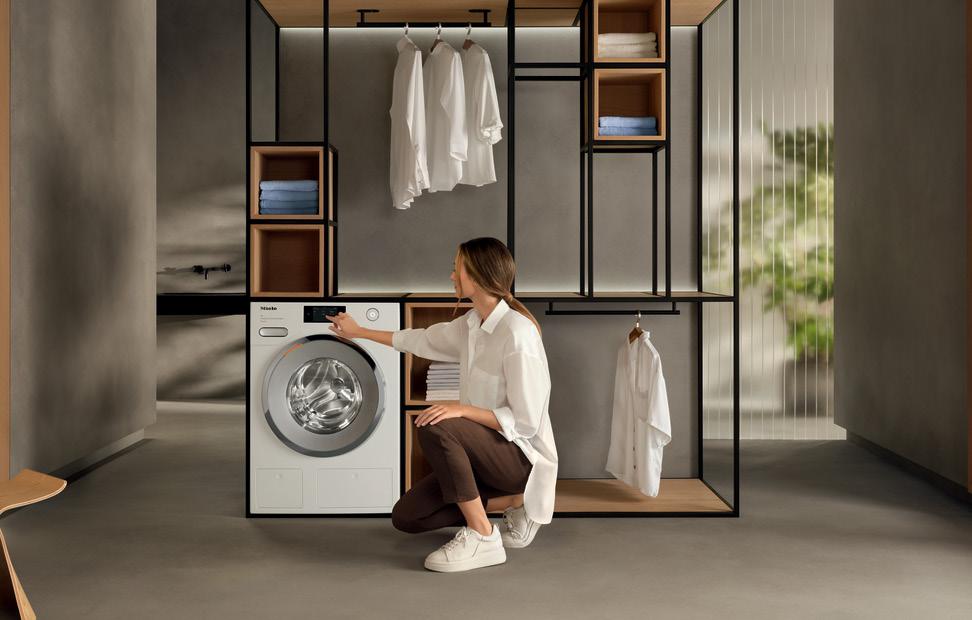
approach encompasses durable, long-lasting products, resource-efficient production, and a deep sense of responsibility toward our supply chains and employees. Receiving one of the most significant sustainability awards is both an honour and a motivation for us to continue driving positive change for a more sustainable future.”
From 2021 onward, Miele has had a global campaign called ‘Quality Ahead of Its Time,’ which showcased the longevity and durability of Miele products, reinforcing the idea that sustainable choices start with appliances built to last. This campaign emphasised how Miele’s commitment to superior craftsmanship helps minimise environmental impact by reducing the frequency of product replacements.
Complementing this initiative, Miele’s ‘Buy Once, Buy Besser’ campaign further encouraged mindful purchasing decisions. “The aim of this campaign was to ensure that by investing in premium, longlasting appliances, consumers can significantly reduce waste, lower their carbon footprint and contribute to a more sustainable lifestyle,” says Meissner. “This message aligns with Miele’s broader sustainability strategy, advocating for quality over quantity to drive meaningful change.”
Energy Reduction & Efficiency: Miele is dedicated to energy efficiency on a global scale, integrating smart features and renewable energy to reduce emissions. Since 2019, Miele has cut CO2 emissions by 8% across all product groups. Most of Miele’s front loading washing machines have an ‘A’ energy rating, while features like TwinDos reduce detergent use by 30% and SingleWash saves 60% energy use.
Sustainability is a top priority, with 50% of Miele’s R&D investment focused on energy and resource conservation. Miele now operates on 100 per cent green electricity at all production sites, generating 7 GWh annually from solar power and 5 GWh of self-generated electricity at our Dongguan facility which is more than the company actually consumes. AR
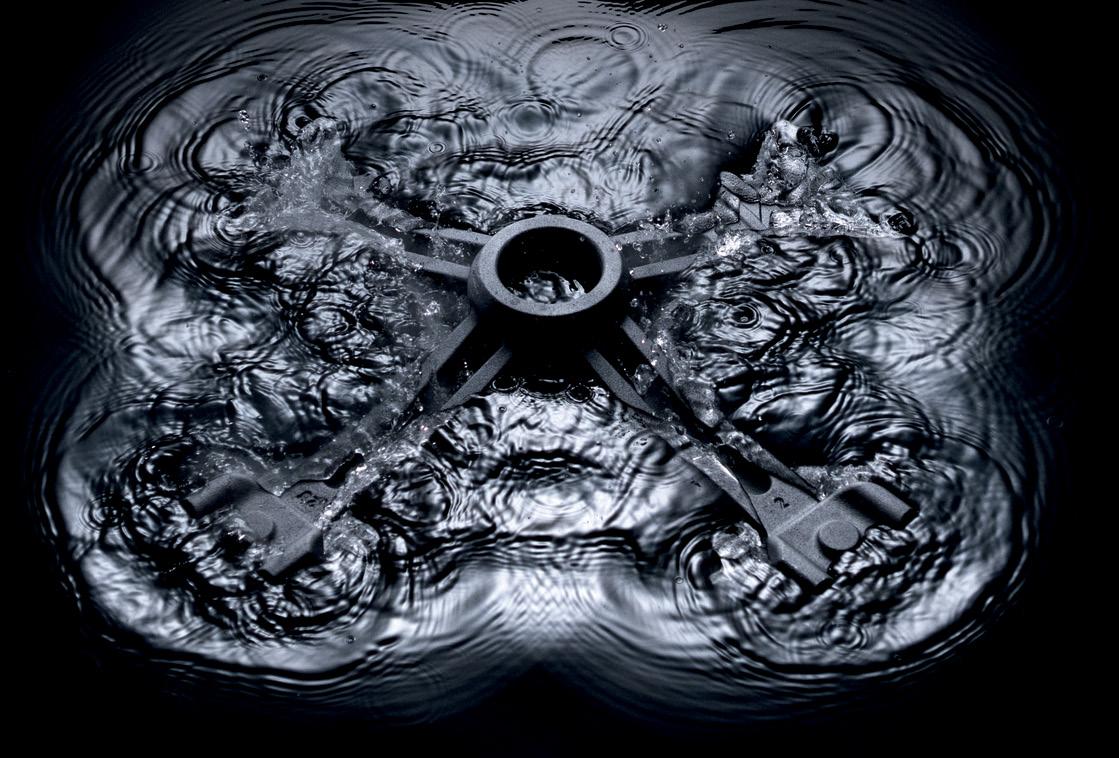


ABOVE: Beko CEO Hakan Bulgurlu says sustainability is more than a business strategy for the company, it is a guiding principle that shapes every aspect of the company’s operations.
Beko continues to garner global recognition for its sustainability initiatives, achieving the first spot on Real Leaders’ 2025 Top Impact Companies List and proving that meaningful impact starts with action.
This prestigious recognition highlights Beko’s dedication to embedding sustainability into its business practices and its mission of inspiring sustainable lives in every home.
Real Leaders, a global media and membership platform, has announced its seventh annual Real Leaders Top Impact Companies ranking. The list aims to recognise companies that thrive while making exceptional contributions to society and the planet. The 2025 list features respected impact brands of all sizes across a variety of industries.
Guided by its vision ‘Respecting the World, Respected Worldwide’, Beko focuses on driving a sustainable future by leveraging its technology, talent, and manufacturing capabilities. Securing the top spot on the Real Leaders Top Impact Companies List reflects the alignment of Beko’s initiatives with Real Leaders’ mission, showcasing the company’s influence in advancing sustainable solutions globally.
“Being recognized as the top company on Real Leaders’ list is a testament to our ongoing efforts to make a positive and lasting difference,” said Beko chief executive officer, Hakan Bulgurlu.
“This honor builds on our recent achievements, including recognition by global sustainability benchmarks like the Dow Jones Sustainability Indices and S&P Global Corporate Sustainability Assessment, as well as the validation of our climate targets by the Science Based Targets initiative.
“At Beko, we view sustainability not as a choice but as a responsibility embedded in every aspect of our work. Our mission is to lead by example, encouraging the business community to adopt
practices that minimize environmental impact while creating positive value for society. This milestone reinforces our resolve to drive sustainable innovation and move closer to achieving a net-zero future.”
Beko’s continued recognition for its sustainability efforts solidifies its role as a trailblazer in integrating environmental and social responsibility with business excellence. With a vision rooted in sustainable progress, Beko is championing efforts that enable businesses and households to contribute to a greener future.
In 2024, Beko ranked 44th among 500 companies and first in its sector on the ‘World’s Most Sustainable Companies 2024’ list, prepared by TIME Magazine and Statista.
Last year Beko’s parent company was recognised with a score of 89/100 in the 2024 S&P Global Corporate Sustainability Assessment (CSA).
“This marks the sixth consecutive year Beko’s parent company has achieved the highest score in the DHP Household Durables Industry, reaffirming our unwavering commitment to shaping a better, more sustainable future.
“The S&P Global CSA is one of the most established frameworks for evaluating companies’ performance on environmental, social, and governance (ESG) criteria, providing annual insights into corporate sustainability efforts.”
According to Bulgurlu, sustainability is more than a business strategy for the company, it is a guiding principle that shapes every aspect of the company’s operations.
“From developing innovative, energy-efficient technologies to fostering ethical and sustainable supply chains, our mission is to create meaningful, positive contributions to the environment and society,” he said.
“Whatever the circumstances, we will not waver in our commitment to sustainability because it is the right thing to do for our business, our planet, and our future.” AR
LG Electronics is driving sustainable business practices both globally and here in Australia.
Measurable progress outlined in its most recent 2023-4 Sustainability Report demonstrate key achievements for the company including a year-on-year reduction in carbon emissions across operations, 95.5% waste recycling rate at LG business sites and an 11.8% reduction in GHG emission intensity during product use for seven major product categories.
LG has also achieved longer term sustainability outcomes including collecting 4.51 million tons of e-waste globally since 2006, and recycling 114,000 tons of plastic used in manufacturing since 2021.
“Globally, LG’s efforts include reducing carbon emissions, increasing recycling rates, and improving the environmental footprint of its products,” said LG Electronics ANZ marketing director, Gemma Lemieux.
“At LG Electronics, sustainability is deeply embedded in our corporate philosophy and operational practices around the world.
“The company actively engages in a range of local and global initiatives that demonstrate a commitment to conservation, community support and employee engagement.”
Locally, LG has a range of initiatives geared towards empowering the community and employees to embrace stewardship of the planet. One example is how LG Electronics Australia has become the first presenting partner of Taronga Conservation Society Australia’s Hatch accelerator program – the world’s only zoo-led startup accelerator. LG Australia’s support of the program expands the 14-week program, providing ecopreneurs with masterclasses, mentorship and funding to develop sustainable business solutions.
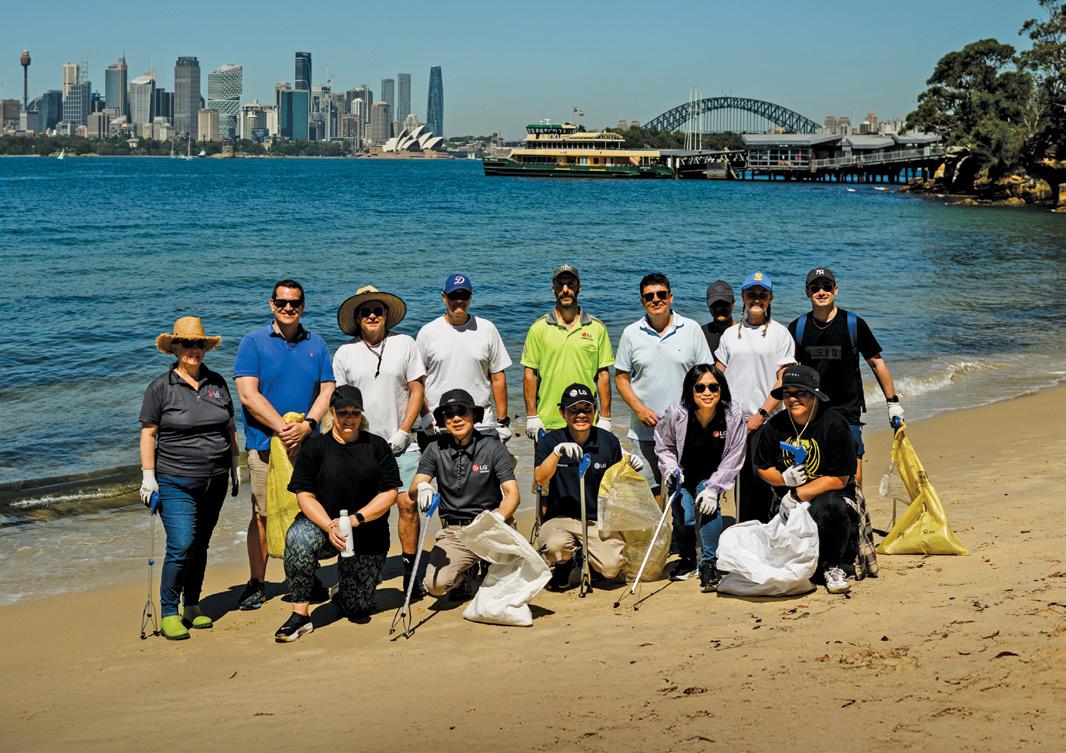
As well as this, beyond the existing $50,000 Hatch Grant and $5,000 People’s Choice Award, LG Australia has introduced the $5,000 LG ‘Life’s Good’ Award as part of this program, reinforcing its commitment to fostering environmental innovation. The program kicked off in April 2025 and culminates in a pitch night at the end of June.
Additionally, LG’s annual REINVENT Day held towards the end of the year, invites employees to engage in environmental actions, from beach clean ups to supporting wildlife conservation, showcasing LG’s commitment to creating a better world through collective action.
As part of its latest REINVENT Day in 2024, LG invited Australian employees to become a Taronga Zoo Parent, supporting the care and conservation of endangered animals both here in Australia.
Officeworks has started a new initiative of holding Recycling Pop-Up Days at Officeworks stores around Australia.
A Recycling Pop-Up Day was held earlier this year at the Officeworks in Fitzroy, Victoria, and this was the fifth Recycling Pop Up Day overall. Previous Pop-Up Days have been very successful, collecting up to 933kg of electronic waste and 18kg of batteries in a single day – diverting this waste from landfill.
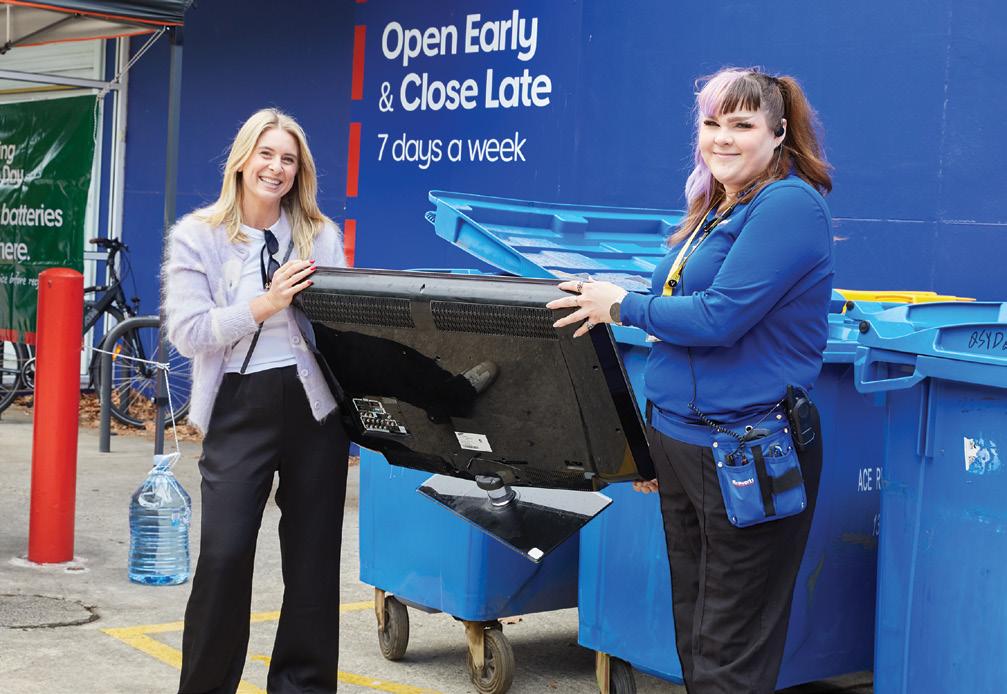
Officeworks holds these Recycling Pop-Up Days to help make a positive difference to the planet by recycling a whole range of tech items. People from the local area are asked to bring household items including batteries, computers, video equipment, games consoles, cameras, televisions, printers, hard drives, phones, ink and toner cartridges and other tech items to the Recycling Pop-Up Day to be collected and recycled.
Officeworks first launched into recycling programs back in 2015 with the launch of the Bring It Back program and has since helped recycle more than 9,000 tonnes of products.
“At Officeworks, we’re proud to play a role in helping Australians make more sustainable choices,” said Officeworks Head of ESG and Corporate Affairs, Fiona Lawrie.
“Our Recycling Pop-Up Days are just one of the ways we’re making it easier for local communities to recycle their unwanted tech and take meaningful steps toward reducing e-waste. We’re excited to keep expanding these initiatives and empowering even more Australians to take part in building a better, more sustainable future,” Lawrie added.
“We’re dedicated to operating in a sustainable manner, including maintaining strong connections with the communities in which we operate.”











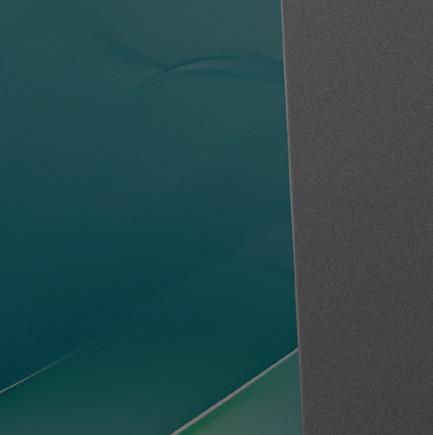

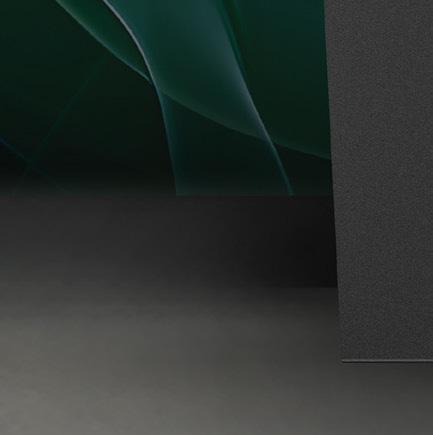











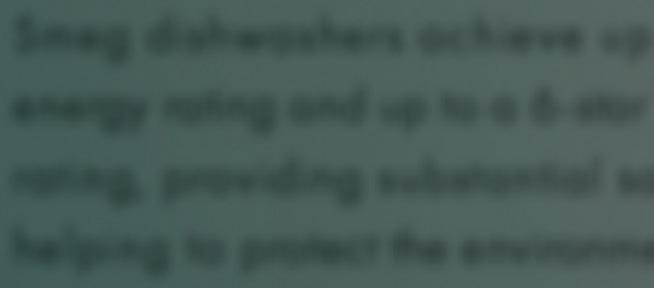
Smeg dishwashers achieve up to a 4-star energy rating and up to a 6-star WELS water rating, providing substantial savings while helping to protect the environment.

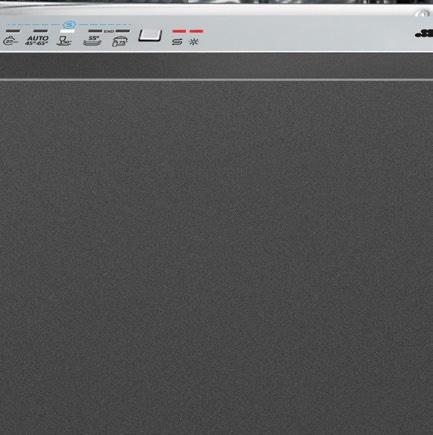



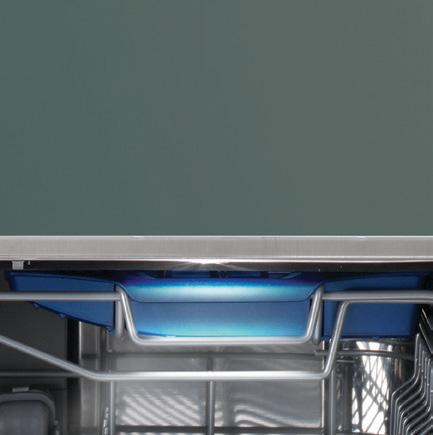
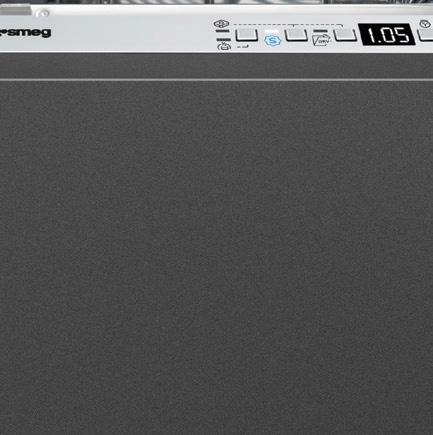



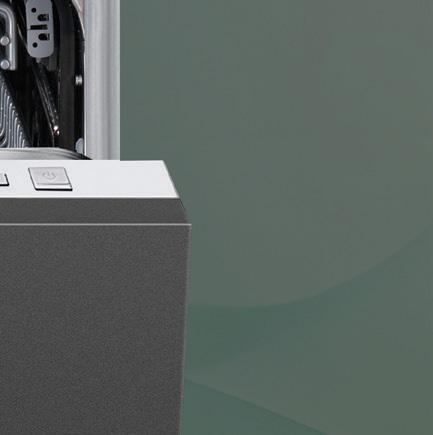







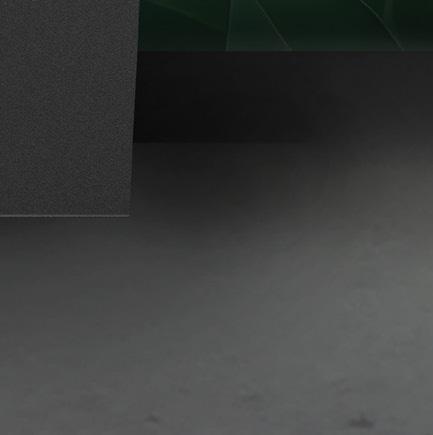



MADE IN ITALY



